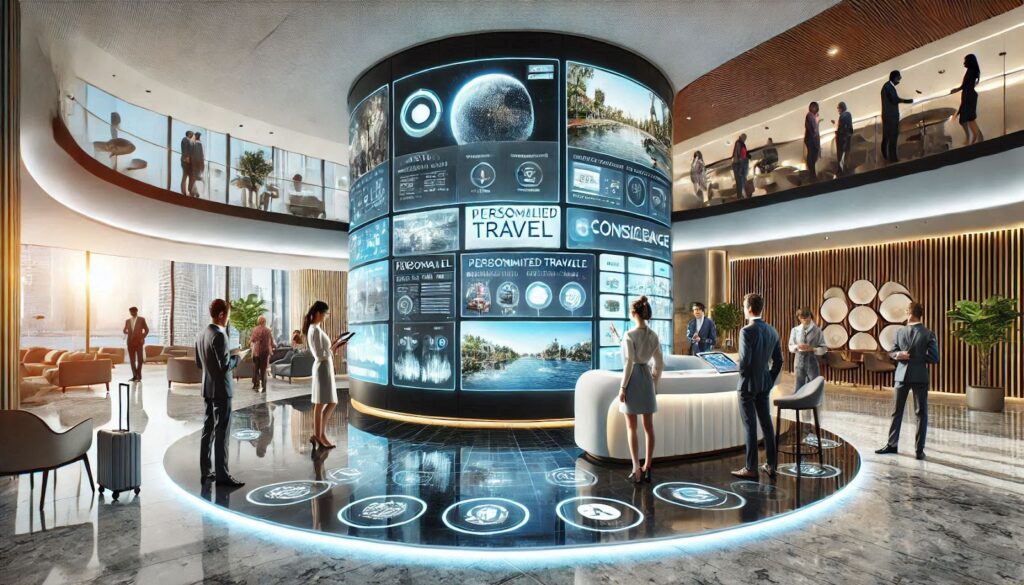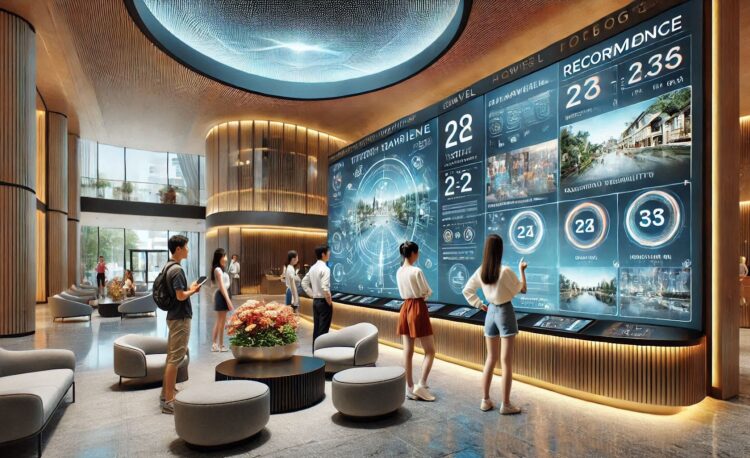Dubai’s real estate landscape continues to evolve, offering innovative living solutions for both residents and investors. In recent years, the demand for premium residential properties has seen a significant surge, with many American and UAE-based investors seeking opportunities in this dynamic market. According to AustinContrarian, a leading real estate analytics platform, Dubai’s townhouse segment has demonstrated remarkable resilience and growth potential, particularly in emerging neighborhoods.
The Renaissance of Urban Living: Dubai’s Townhouse Revolution
The concept of townhouse living in Dubai has undergone a dramatic transformation over the past decade. Initially viewed as a compromise between apartments and villas, townhouses have emerged as a preferred choice for discerning residents who value both luxury and practicality. Recent data from the Dubai Land Department reveals that townhouse transactions increased by 37% in 2023 compared to the previous year, with average property values appreciating by 15.8% in prime locations.
The architectural evolution of Dubai’s townhouses reflects a sophisticated blend of traditional Middle Eastern design elements and contemporary aesthetics. Modern developments incorporate smart home technologies, sustainable building practices, and innovative space utilization techniques. These properties typically range from 2,500 to 4,500 square feet, offering generous living spaces that cater to various lifestyle needs.
Dubai’s townhouse communities have become microcosms of urban sophistication, featuring dedicated retail spaces, educational facilities, and recreational areas. The integration of these amenities has created self-sustained neighborhoods that appeal to both permanent residents and seasonal visitors. Many developments boast occupancy rates exceeding 90%, indicating strong market demand.
Statistical analysis shows that townhouse communities in Dubai maintain higher property values compared to similar residential formats in other global cities. For instance, the price per square foot in premium townhouse developments ranges from $350 to $800, offering competitive returns on investment while remaining more accessible than standalone villas.
Beyond Four Walls: The Ecosystem of Modern Townhouse Living
The modern Dubai townhouse extends far beyond traditional residential boundaries, incorporating elements that enhance both lifestyle quality and investment value. Current developments emphasize the creation of comprehensive living environments that cater to diverse resident needs while maintaining high standards of luxury and convenience.
Community planning in Dubai’s townhouse developments reflects a deep understanding of contemporary living requirements. Developments typically allocate 30-40% of total area to green spaces and community facilities, creating environments that promote social interaction and wellness. These spaces include temperature-controlled walking tracks, children’s play areas, and communal gardens designed to thrive in Dubai’s climate.
Security features in modern townhouse communities represent significant technological advancement. Developments employ AI-powered surveillance systems, smart access controls, and dedicated security personnel. These measures contribute to remarkably low incident rates, with some communities reporting zero security breaches over multiple years.
The integration of retail and service facilities within townhouse communities has created unique micro-economies. Studies indicate that property values in communities with well-planned retail components appreciate 12-15% faster than those without such amenities. Residents typically save 30-45 minutes daily by having essential services within walking distance.

Strategic Locations: The Geographic Advantage
Dubai’s townhouse developments occupy strategic positions that balance accessibility with exclusivity. The careful selection of locations reflects deep understanding of urban development patterns and future growth trajectories. Property analysts project significant value appreciation in emerging townhouse districts over the next five years.
Transportation infrastructure plays a crucial role in location selection. Recent developments are positioned within 15-20 minutes of major business districts while maintaining convenient access to Dubai International Airport. The proximity to the newly expanded metro network has become a key value driver, with properties near metro stations commanding 18-25% premium.
Environmental considerations significantly influence location selection for modern townhouse developments. Properties are positioned to maximize natural light while minimizing exposure to harsh desert conditions. Advanced modeling techniques ensure optimal orientation for energy efficiency, resulting in utility costs 20-30% lower than comparable properties.
Emerging townhouse communities in Dubai Hills Estate, Arabian Ranches III, and Damac Hills 2 demonstrate the evolution of location strategy. These areas combine excellent connectivity with abundant green spaces, creating environments that appeal to both end-users and investors. Market data indicates annual rental yields ranging from 6.5% to 8.2% in these locations.
Investment Dynamics: Numbers That Matter
The investment landscape for Dubai townhouses presents compelling opportunities backed by robust market fundamentals. Recent analysis reveals that townhouse investments have outperformed other residential segments, delivering average annual returns of 7.8% over the past five years.
Market data indicates strong demand from international investors, with American buyers accounting for approximately 15% of townhouse transactions in 2023. The combination of tax advantages, strong rental yields, and potential capital appreciation creates an attractive investment proposition. Properties in premium locations have demonstrated value appreciation of up to 45% over three years.
Rental market dynamics support the investment case for Dubai townhouses. Average rental yields range from 5.5% to 8%, significantly higher than comparable properties in other global cities. The market demonstrates strong seasonal variation, with peak rental rates during winter months offering opportunities for optimized returns.
Financial analysis reveals that townhouse investments typically break even within 8-12 years, assuming standard market conditions. Factors contributing to this favorable timeline include strong rental demand, relatively low maintenance costs, and steady property value appreciation. Professional property management services typically charge 5-7% of rental income, ensuring hassle-free ownership for international investors.
Technology Integration: Smart Homes in the Desert
Modern Dubai townhouses incorporate advanced technologies that enhance both living experience and property value. Recent developments feature integrated smart home systems that allow comprehensive control of environmental settings, security features, and energy consumption.
Energy management systems in contemporary townhouses demonstrate impressive efficiency metrics. Properties equipped with smart climate control and lighting systems report energy savings of 30-40% compared to conventional homes. Solar integration capabilities and advanced insulation technologies further enhance sustainability credentials.
Home automation features extend beyond basic functionality to create truly intelligent living spaces. Voice-activated controls, automated scheduling, and AI-powered learning systems adapt to resident preferences while optimizing resource usage. These technologies contribute to property value appreciation, with smart-enabled homes commanding premiums of 12-18%.
Security integration represents a crucial technological component. Modern townhouses feature multi-layer security systems including biometric access controls, smart cameras with AI-powered analytics, and integrated emergency response protocols. These systems significantly enhance property appeal while reducing insurance costs by up to 25%.
Regulatory Framework and Property Rights
Dubai’s property market operates under a well-defined regulatory framework that protects investor interests while promoting market stability. Recent regulatory updates have enhanced transparency and strengthened buyer protection measures, particularly benefiting international investors.
The property registration process for townhouses follows streamlined procedures designed to facilitate international ownership. Transaction costs typically range from 4-6% of property value, including registration fees and agent commissions. The Dubai Land Department’s digital platforms enable efficient property management and documentation.
Legal protections for property owners have been significantly enhanced through recent legislative updates. These changes address key concerns including inheritance rights, dispute resolution mechanisms, and property maintenance standards. The regulatory environment supports various ownership structures, accommodating both individual and corporate investors.
Maintenance regulations for townhouse communities ensure consistent property standards while protecting owner interests. Community service charges typically range from $5-8 per square foot annually, covering common area maintenance, security services, and facility management. Transparent billing and regular audits ensure efficient fund utilization.
The Lifestyle Proposition: Daily Living in Dubai’s Townhouses
The lifestyle offering of Dubai townhouses extends beyond luxury amenities to create comprehensive living experiences. Communities are designed to support diverse lifestyle preferences while maintaining high standards of comfort and convenience. Recent resident satisfaction surveys indicate approval ratings exceeding 85% across major developments.
Educational infrastructure plays a crucial role in community planning. Premium townhouse developments are typically located within 10-15 minutes of international schools, with some communities featuring on-site educational facilities. This proximity significantly influences property values, with locations near top-tier schools commanding premiums of 15-20%.
Healthcare accessibility represents another key lifestyle component. Modern townhouse communities maintain strategic partnerships with healthcare providers, ensuring resident access to quality medical services. Some developments feature on-site clinics and wellness centers, contributing to comprehensive community healthcare solutions.
Cultural and recreational facilities within townhouse communities support diverse lifestyle preferences. Developments typically include multi-purpose event spaces, sports facilities, and cultural centers. These amenities foster community engagement while enhancing property appeal for both residents and investors.
